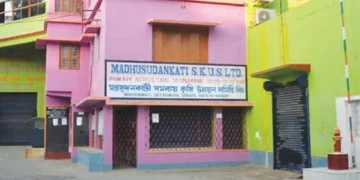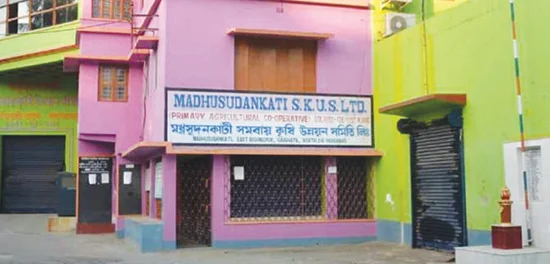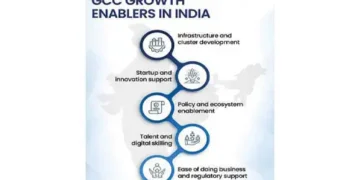Blitz Bureau
NEW DELHI: COOPERATIVES in India are increasingly serving as local community hubs, offering a unified platform for financial services, educational development, welfare schemes, healthcare access, and essential utilities—fostering inclusive development at the grassroots level. Stories from West Bengal further reinforce this nationwide momentum.
The Madhusudankati Agricultural Credit Society has gone from basic agri-credit to becoming a full-service multipurpose PACS. It extends Kisan Credit Card and Self-Help Group loans, operates as a retail and wholesale dealer of fertilisers and pesticides. The society also runs a Custom Hiring Centre, Rural Water Project, Agricultural Produce Procurement Centre, and consumer goods stores.
In addition to its economic activities, it actively contributes to social welfare by organising health camps and operating a medical centre, children’s park, and community centre.
Comprehensive services
In Jammu & Kashmir’s Poonch district, the Gold MPCS Limited stands out for its comprehensive rural services. It provides crop loans, insurance, PM Surya Ghar scheme facilitation, and acts as a Common Service Centre (CSC). In FY 2023–24, the CSC of this society completed 641 transactions, while in FY 2024–25 (till November 11, 2024), it recorded 1,852 transactions. Similarly, in Kishtwar (J&K), the Atholi Multipurpose Cooperative Society acts as a lifeline for the local community.
Operating under model bylaws, the society runs a Jan Aushadhi Kendra and provides CSC services and nutritional supplies to Anganwadi centres. India’s cooperative reforms have also taken shape at the national level. In 2023, three multi-state cooperatives were formed to give cooperatives access to markets, branding, and export capacity: National Cooperative Exports Limited (NCEL); National Cooperative Organics Limited (NCOL); and Bharatiya Beej Sahakari Samiti Limited (BBSSL) As of March 31, 2025, NCEL has already onboarded 8,863 PACS/cooperatives to facilitate collective exports. Further, NCEL has successfully exported approximately 13.08 LMT of agricultural commodities, including rice, wheat, maize, sugar, onion, and cumin seed, valued at Rs. 5,239.5 crore to 27 Countries. While, 5,185 PACS/ cooperative societies have become member of NCOL. NCOL has launched 21 products worth around Rs. 167.1 lakh under ‘Bharat Organics Brand’.
NCOL has also signed Memorandums of Understanding (MoUs) with nodal agencies across 10 states. On the other hand, 19,171 PACS/ Cooperative Societies have become member of BBSSL. BBSSL has been granted a seed license in 13 states.
The ministry has recently launched a New National Cooperative Policy on July 24, 2025, to further accelerate this transformation. The objective of the National Cooperative Policy is to make cooperative institutions inclusive, manage them professionally, prepare them for the future and be able to create large scale employment and livelihood opportunities especially in rural India. Further, as part of the International Year of Cooperatives (IYC) 2025, the Ministry of Cooperation has launched a comprehensive National Action Plan to position Indian cooperatives on the global stage. The plan focuses on showcasing India’s successful cooperative models – like Amul, Iffco and Kribhco – through international exhibitions, documentation of best practices, and digital outreach.
Promoting exports
The Government is also working to promote cooperative exports, support startups within cooperatives, and facilitate cross-country learning. The initiative aims to make India a global hub for cooperative innovation by leveraging its grassroots strength and vast membership base. India’s cooperative boom is no longer an abstract ideal – it is a grounded, grassroots revolution. Cooperatives are not just empowering people – they’re reimagining what inclusive, democratic growth can look like.































